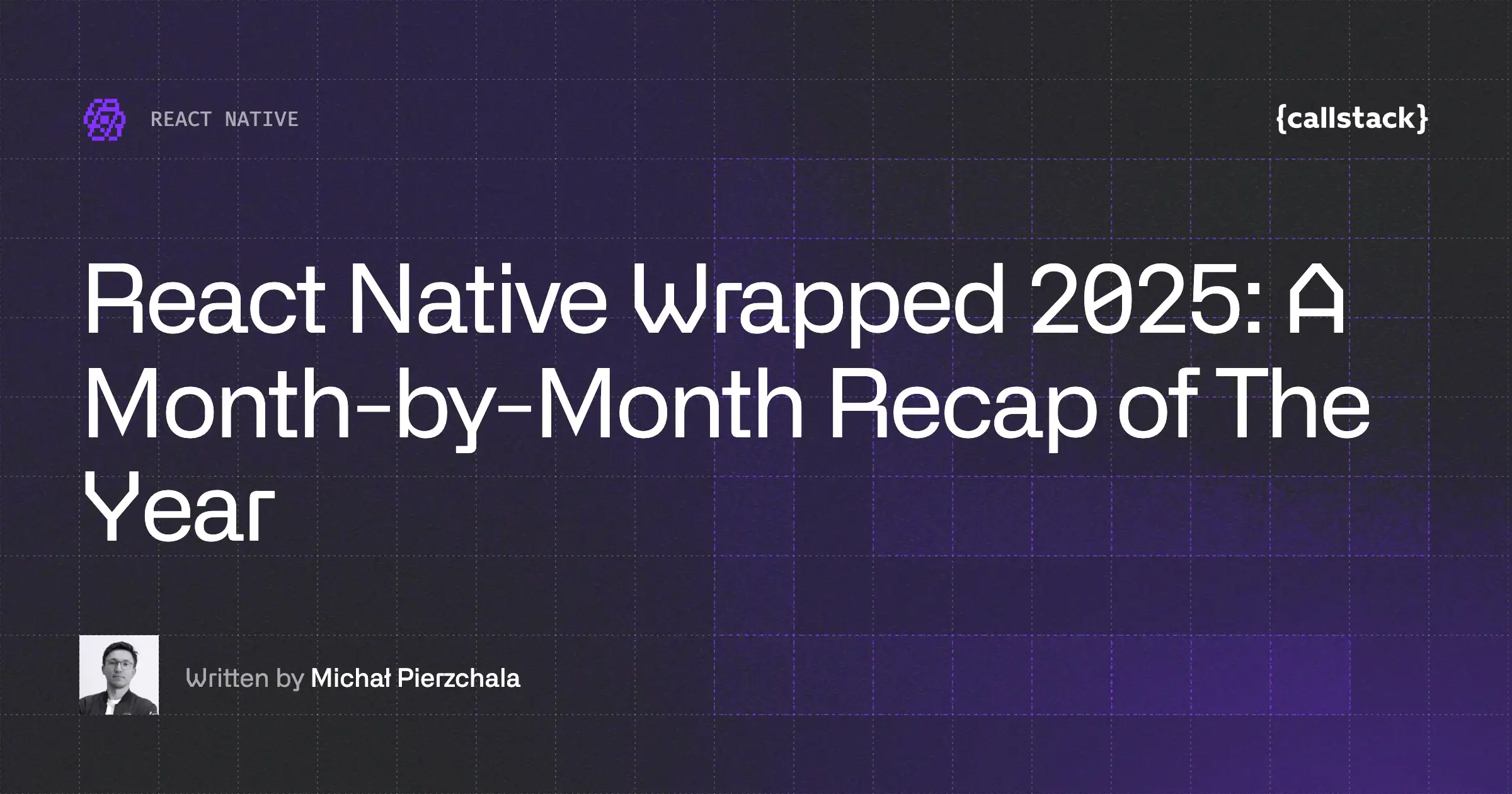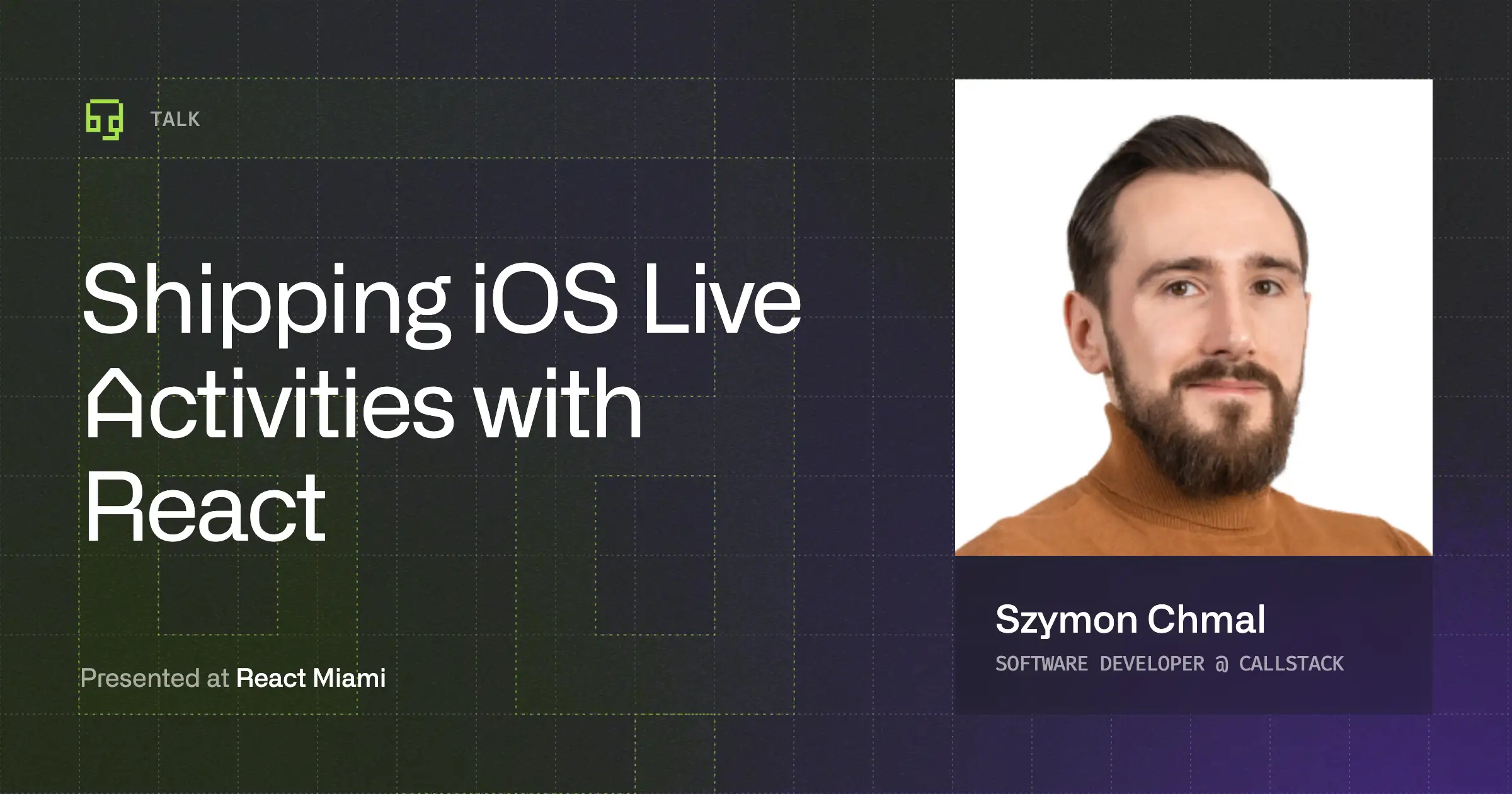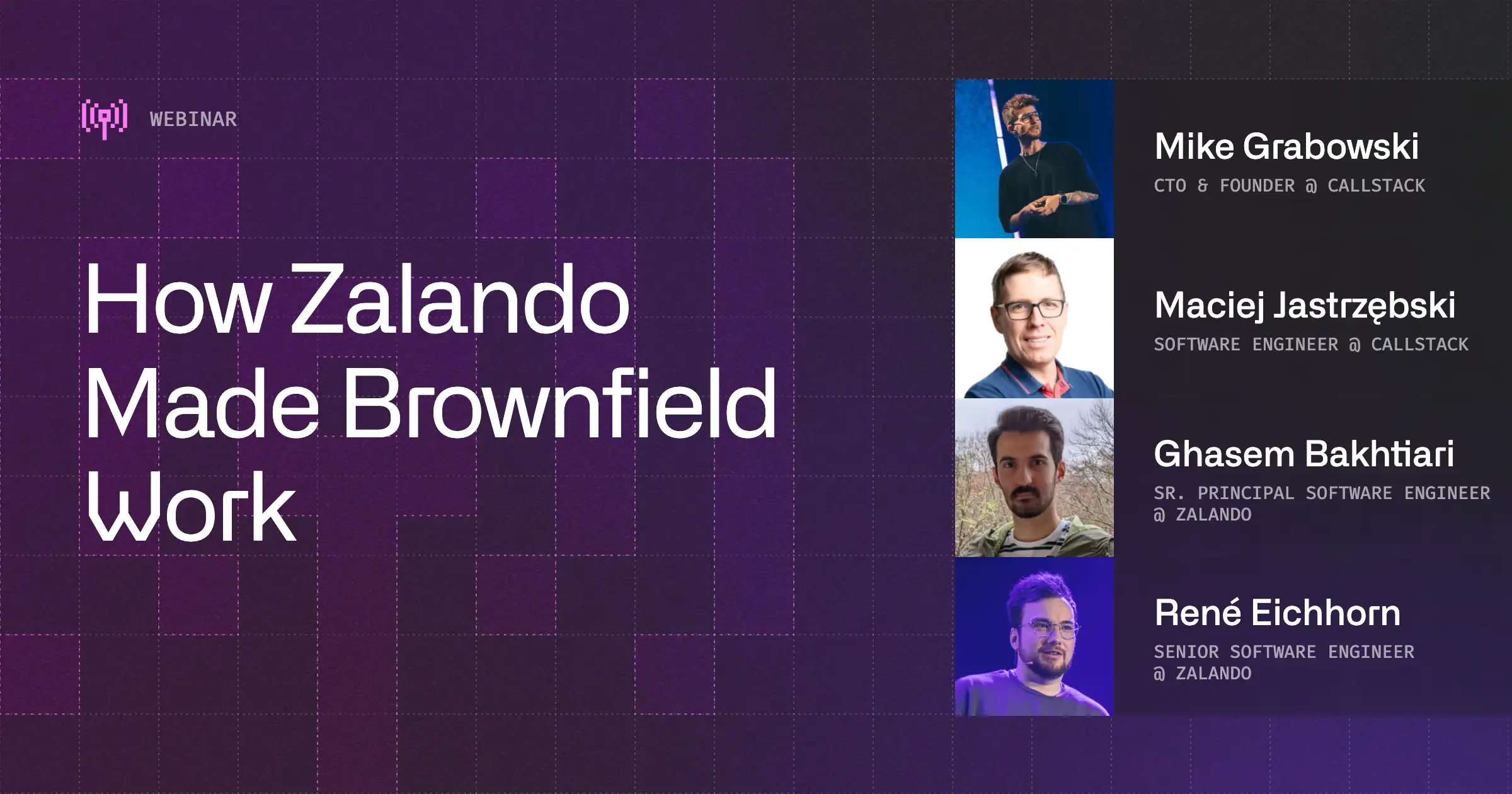To address the questions from the RNEU 2020 audience, we invited four leading experts to talk about React Native. This episode is a Q&A panel and it’s divided into three parts: the upcoming re-architecture of React Native, its cross-platform compatibility and general development.
The first part covers the new React Native architecture, and Mike and his guest speakers lay out some details on the expected updates and features.
React Native EU 2020 Q&A
Among others, you'll find answers to the following questions:
- What is the status of the re-architecture? What changes are already shipped, and when do we expect to have an update on the rest of them?
- Where can you track updates on the re-architecture?
- Can we expect a smooth transition between current and “new” React Native?
The second part of the podcast explores the multi-platform aspect of React Native. The speakers discuss the opportunities that arise from sharing the same code base between mobile and web. From the very beginning, React Native was all about cross-platform, and with more and more platforms being added, it’s no wonder that this topic sparks a lot of interest.
In the last section, the speakers share their performance challenges. As performance is always a trending topic, we received a great volume of questions concerning best ways to deal with challenging performance issues.
Last but not least, our guest experts give their perspective on the React Native future - the framework development and its general direction.
Learn more about Cross-Platform

React Native Wrapped 2025: A Month-by-Month Recap of The Year
The first edition of React Native Wrapped looks back at the year RN turned 10 and the ecosystem doubled down on the New Architecture. It provides a month-by-month record of 2025, covering major framework releases, the Legacy Architecture freeze, React 19 integration, and notable developments across tooling, performance, styling, native modules, Expo, and platform adoption.

From Teddy Bears to Voice Agents: Kraen Hansen on Voice AI, Local-First & App Security
Lorem ipsum dolor sit amet, consectetur adipiscing elit. Suspendisse varius enim in eros elementum tristique. Duis cursus, mi quis viverra ornare, eros dolor interdum nulla, ut commodo diam libero vitae erat. Aenean faucibus nibh et justo cursus id rutrum lorem imperdiet. Nunc ut sem vitae risus tristique posuere.

Shipping iOS Live Activities with React: The Voltra Story
Lorem ipsum dolor sit amet, consectetur adipiscing elit. Suspendisse varius enim in eros elementum tristique. Duis cursus, mi quis viverra ornare, eros dolor interdum nulla, ut commodo diam libero vitae erat. Aenean faucibus nibh et justo cursus id rutrum lorem imperdiet. Nunc ut sem vitae risus tristique posuere.

Scaling React Native at Zalando: How Brownfield Migration Paid Off
Lorem ipsum dolor sit amet, consectetur adipiscing elit. Suspendisse varius enim in eros elementum tristique. Duis cursus, mi quis viverra ornare, eros dolor interdum nulla, ut commodo diam libero vitae erat. Aenean faucibus nibh et justo cursus id rutrum lorem imperdiet. Nunc ut sem vitae risus tristique posuere.


